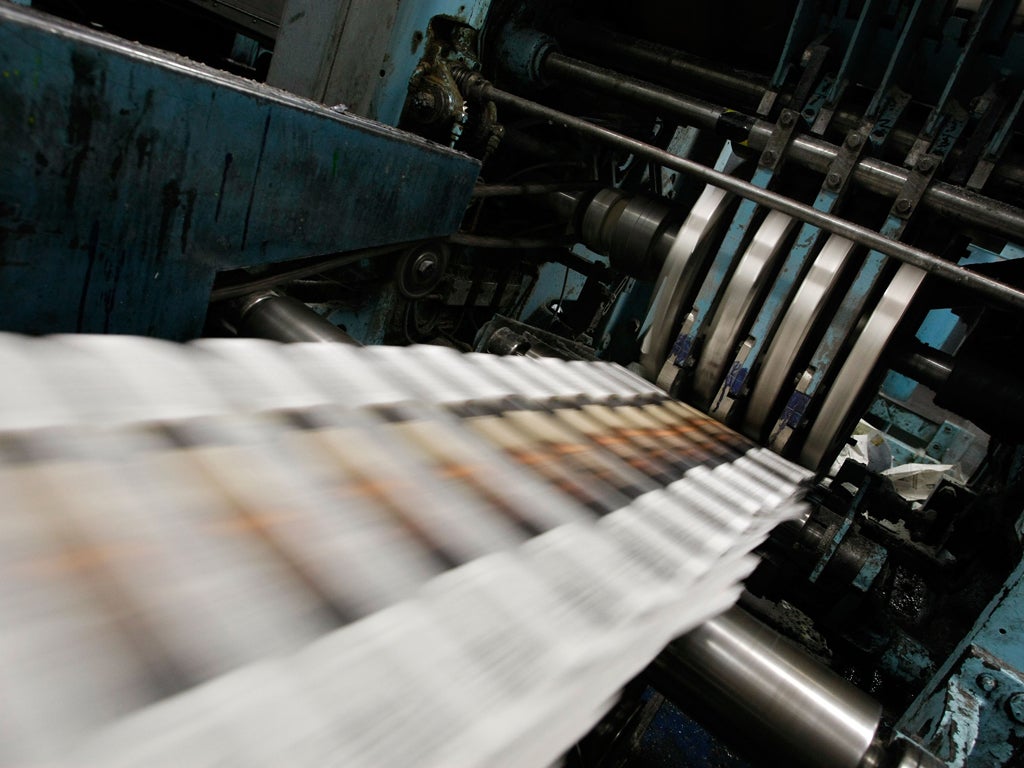The value of professional journalism
A few reporters might be daft or inexperienced, but most work ridiculously hard to follow the rules for little money and less thanks

Most of the journalists I know probably slept through the Today programme on Saturday morning, which is a shame, because it featured a remarkable statement. Chris Yates, an aviation expert being interviewed about the previous night’s awful helicopter crash in Glasgow, said that while he was usually in two minds about how much credence to give eye-witness accounts, one account in this case was from a journalist – “a person trained in seeking out answers” – and therefore potentially deserved more attention. The observer in question was Gordon Smart, editor of the Scottish Sun, who saw the aircraft drop from the sky. Non-journalists probably didn’t event register Mr Yates’s comment but I, after almost a decade in this much-maligned trade, nearly fell off my chair at this suggestion that we might have our uses.
I came into journalism just as the internet was really taking off as a source of news. My then employers, like much of the mainstream media, were pretty slow on the uptake, and while the big newsroom beasts got round to taking the web seriously, “citizen journalism” and social networking rapidly became powerful forces. Suddenly, everyone was a journalist. While not exactly fantastic for my job security, this was and is an exciting development - democratising the ability to publish, drawing a wider range of perspectives to public attention, and bringing words, pictures and videos from parts of the world where cash-strapped newspapers and broadcasters fear to tread.
But it means that professional journalists became, in many eyes, surplus to requirements. More than that – with information suddenly available from salt-of-the-earth citizens, the snide, aggressive and underhand activities of some elements of the media became more socially unacceptable, and more damaging to the reputation of journalists as a whole. The phone-hacking scandals made things much worse, but in my experience, having spent plenty of time as a reporter trying to get members of the public to talk to me about even uncontroversial subjects, people disliked and mistrusted hacks long before Leveson.
And so to hear an interviewee acknowledge – even in passing – that a journalist might actually have a skill set was an unexpected delight. I take similar heart from the news that the Attorney General is to begin publishing court advisory notes in an effort to protect the justice system from careless users of social media. These orders have, until now, been disclosed only to mainstream media outlets, warning them about information that could prejudice a trial or inappropriately identify an individual if it were to reach the public domain. Professional journalists have, with some unfortunate exceptions, been quietly following these and many other rules for years. While the publication of court advisories for all to read has been correctly interpreted as another sign of the influence of social media, it is also an acknowledgement that the power to publish brings responsibilities. Perhaps I am wildly optimistic, but I take it as a small step along the road to the rehabilitation of professional journalism as a social good.
You see, some news reporters are scurrilous and malevolent or inexperienced and daft, just like some people in all walks of life. But most who I have met work ridiculously hard for little money and less thanks. I’m not pretending I’m a brain surgeon, but I am trained in media law, can write shorthand to ensure that I take accurate notes and, as a news editor these days, have some ability to rapidly sift through a haystack of information to find the important and interesting needles.
I am currently off work and after six months of receiving news as a punter – via finished newspapers and TV bulletins rather than in the newsroom – I can see how easy it is to see the business of journalism as straightforward. But that is testament to the research, analysis, contact-building, thought, experience and yes, rule-following, that has gone into making those complex finished products so clear, concise and thus apparently simple.
The established media has many problems – it is Oxbridge-dominated (that includes me), resource-starved and in many ways hidebound in its outlook, and amateur citizen journalism is a welcome addition to our understanding of the world. But it is not a replacement, and if the value of professional reporters is not recognised soon, society will learn that the hard way.
Which is why I welcome the publication of court advisories as a small insight into the inner workings of professional newsgathering for those who glibly tweet or post on Facebook, thinking that journalism is easy while neglecting to check their facts or the law. It won’t reveal much else of what a good reporter does – weeks spent proving a story that gets squeezed out for lack of space; painstaking negotiations with editors and media lawyers to ensure that an article is watertight; days watching court proceedings that nobody cares to tweet about, just to get more background information and inform later pieces.
It won’t make people realise that somebody, somehow has to pay for professional journalism of the kind that digs deep, gets it right and keeps watch not just on Westminster and the big banks but on democracy at the unglamorous level of magistrates’ courts and council meetings. But when the prejudicial social media messages keep coming – either because users don’t understand the law or can’t be bothered to read the Attorney General’s online advice – maybe a few more people will begin to appreciate what professional journalists do.

Join our commenting forum
Join thought-provoking conversations, follow other Independent readers and see their replies